 Old English poetry was performed, probably sung, for purposes beyond mere entertainment. The Germanic tribes Tacitus visited at the end of the first century would prep for battle by barding, which he called “a peculiar kind of verse” sung to stimulate their courage and to divine the outcome of the coming fight through the quality of the sound itself. Tacitus tells us about these peculiar verses almost immediately in his report back to the empire, so you know it was impressive. It would be. Imagine it: he says the people would put their battle shields to their mouths, perhaps in them, and sing. A shield as a musical instrument. Their favorite sounds were “a harsh piercing note and a broken roar,” which “does not seem so much an articulate song, as the wild chorus of valor.” What were the words? Were they the names of the gods? An appeal for their protection? A … More
Old English poetry was performed, probably sung, for purposes beyond mere entertainment. The Germanic tribes Tacitus visited at the end of the first century would prep for battle by barding, which he called “a peculiar kind of verse” sung to stimulate their courage and to divine the outcome of the coming fight through the quality of the sound itself. Tacitus tells us about these peculiar verses almost immediately in his report back to the empire, so you know it was impressive. It would be. Imagine it: he says the people would put their battle shields to their mouths, perhaps in them, and sing. A shield as a musical instrument. Their favorite sounds were “a harsh piercing note and a broken roar,” which “does not seem so much an articulate song, as the wild chorus of valor.” What were the words? Were they the names of the gods? An appeal for their protection? A … More
Tag Archives: Tacitus
Translating Tiw
 The Rune Poem says Tiw is one of the signs, a tacn, a token. This is the first clue in the riddle. A sign is a clue to something as well; signs symbolize in shorthand something else. A letter in an alphabet is a sign that means a sound and sometimes a whole word. The color of a light hanging over a road is a sign standing as evidence of broader meanings, covenants of mutual trust, expectations of behavior. And signs can be signs for signs, like these: 💰, 🐮, 🌹🌵, 😉, 🛣, 🔦, 🎁, 🤑, ⛈, 💔🆘👂, ❄️, 🌱, 🌲🪦, 🎮, 🧬, 🌅, 🪧⭐⚖, 🌳🔮, 🐴, 🫂🪦, 🌊, 🛒👋, 🏠, ☀, 🌳🌰⛵, 🌳😇👊, 🏹, 🦫, 🪦. These are signs in nested levels of scale. … More
The Rune Poem says Tiw is one of the signs, a tacn, a token. This is the first clue in the riddle. A sign is a clue to something as well; signs symbolize in shorthand something else. A letter in an alphabet is a sign that means a sound and sometimes a whole word. The color of a light hanging over a road is a sign standing as evidence of broader meanings, covenants of mutual trust, expectations of behavior. And signs can be signs for signs, like these: 💰, 🐮, 🌹🌵, 😉, 🛣, 🔦, 🎁, 🤑, ⛈, 💔🆘👂, ❄️, 🌱, 🌲🪦, 🎮, 🧬, 🌅, 🪧⭐⚖, 🌳🔮, 🐴, 🫂🪦, 🌊, 🛒👋, 🏠, ☀, 🌳🌰⛵, 🌳😇👊, 🏹, 🦫, 🪦. These are signs in nested levels of scale. … More
Translating Beorc
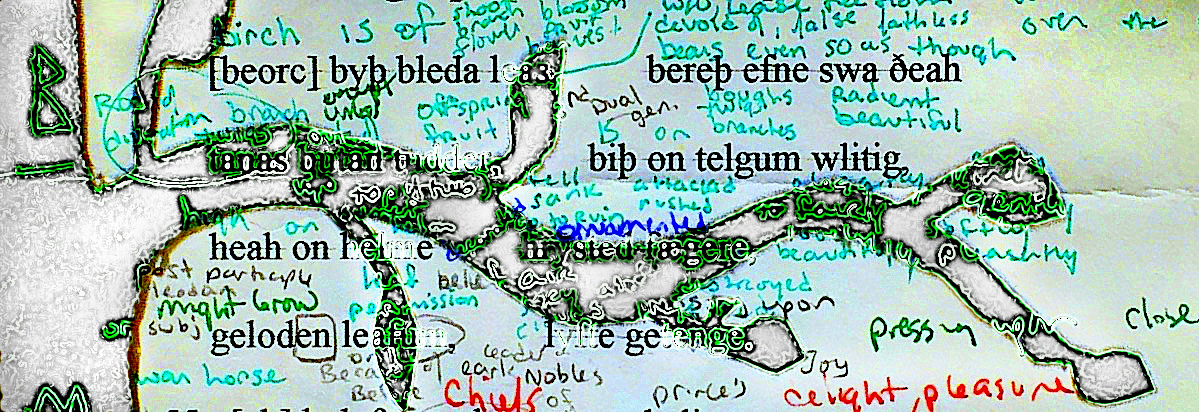 This stanza’s riddle is about a tree. There lives a whole forest of important trees in the Rune Poem; this one is hrysted fægere, beautifully adorned, fair and decorative with leaves lyfte getenge, pressing against the sky.
This stanza’s riddle is about a tree. There lives a whole forest of important trees in the Rune Poem; this one is hrysted fægere, beautifully adorned, fair and decorative with leaves lyfte getenge, pressing against the sky.
Why is this tree important? You can tell the future with this tree, that’s why. It has tanas, twigs for divination. There are lots of words for a twig including twig, also gerd, croh, hris, læl, spranca, sprota, spæc, sumorloda, telga. This particular word for twig, tanas, tan, is the only one that specifies they are used for divining the future. Tanas are special twigs, prophetic twigs. Which trees produces twigs so special you could carve a rune into them and find out what’s coming? Who would know that? You know who knows that, Tacitus knows that, that’s who. He visited the people who lived north of Rome, all the … More
X≠Y≠Z: Divination
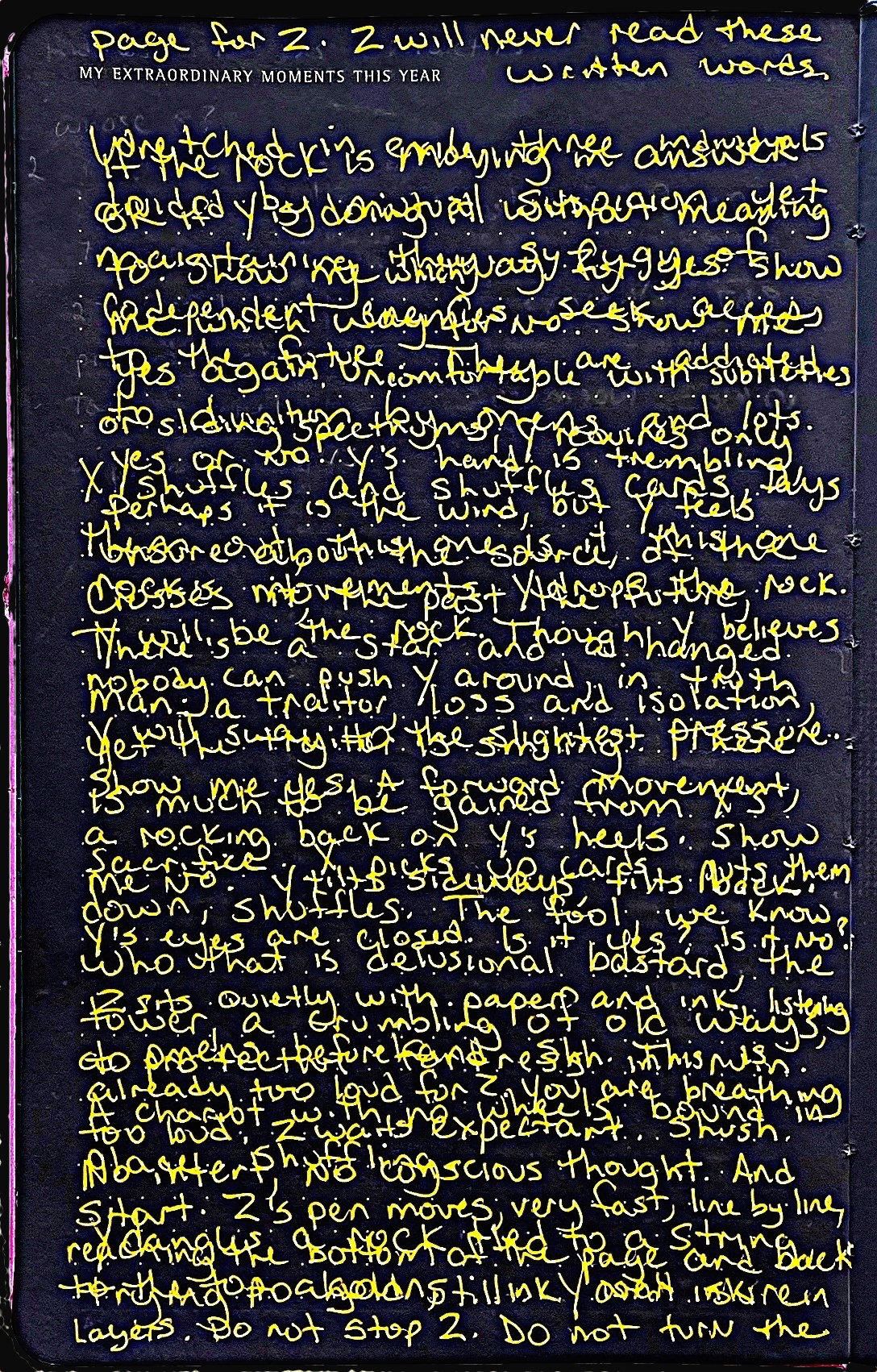 Wretched in exile, three individuals divided by mutual suspicion yet maintaining the syzygy of codependent enemies, seek access to the future. They are addicted to divination by omens and lots.
Wretched in exile, three individuals divided by mutual suspicion yet maintaining the syzygy of codependent enemies, seek access to the future. They are addicted to divination by omens and lots.
X shuffles and shuffles cards, lays them out, this one is it, this one crosses it, the past the future, There’s a star and a hanged man: a traitor, loss and isolation, yet the traitor is smiling. There is much to be gained from X’s sacrifice. X picks up cards, puts them down, shuffles. The fool, we know who that is delusional bastard, the tower, a crumbling of old ways, a protective fortress in ruin. A chariot with no wheels, bound in place. Shuffling.
Y dangles a rock tied to a string, trying to hold still. Y isn’t sure if the rock is moving in answer or if Y is doing it without meaning to. Show me which way for yes. Show me … More
How to Listen to a Horse
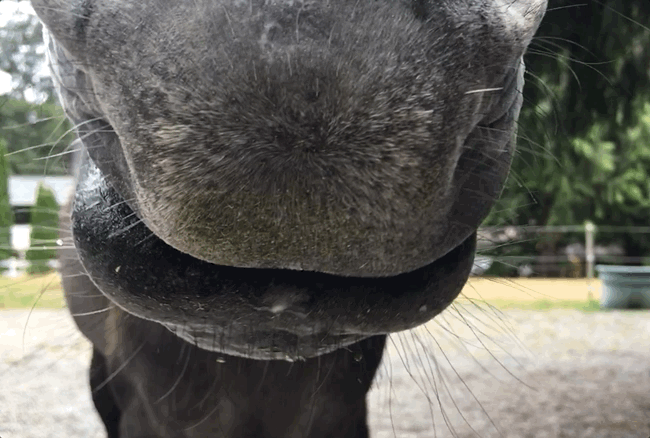 Publius Cornelius Tacitus
Publius Cornelius Tacitus
Ingaevones Territory
Year 98 of the New Calendar
Gnaeus Julius Agricola
Governor, Britannia, ret.
Dearest Father in Law,
How are you, I am fine. Julia sends her love. I am still in Germania, moving in the direction of Gaul, separated from this place by rivers, mountains, and mutual dread. This is a land rude in its surface, rigorous in its climate, cheerless to every beholder and cultivator.
Today I observed the practice of conjuring, which one cannot avoid as no people are more addicted to divination by omens and lots. Of their methods, some are familiar and civilized for instance auguring from the sounds and flights of birds, others prove most unnatural, such as deriving admonitions and presages from horses. These are the omens they deem most important:
When a horse neighs, the people foresee a meeting or gathering, of which they sit to many, most often fully armed. If the … More
Translating Ing
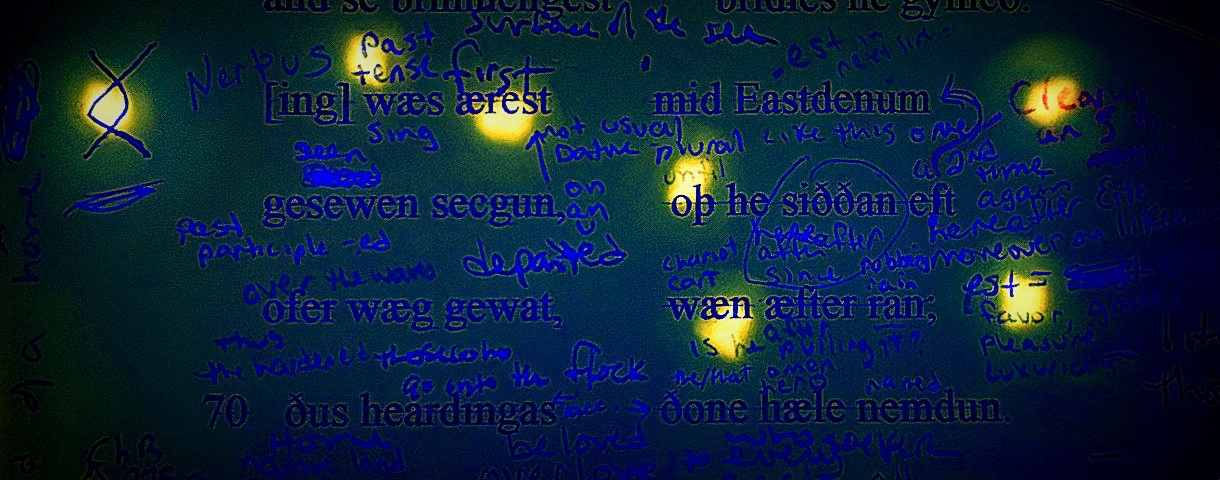 Ing is a mystery. Who is Ing? Where did he go? Why did he leave? We don’t know. You know who knows? The Rune Poem knows: the Rune Poem has the only specific intel we’ve got on Ing.
Ing is a mystery. Who is Ing? Where did he go? Why did he leave? We don’t know. You know who knows? The Rune Poem knows: the Rune Poem has the only specific intel we’ve got on Ing.
Case File: Ing
Clue: Ing was first among the East Danes. Where are these East Danes? The Rune Poem predates the Viking expansion (973-1066), so there’s only one place to look for Danes: modern Denmark and southern Sweden plus the coasts and islands thereabout. The East Danes lived in the Southern Sweden and Zealand half of things, where you can find plenty of people named after Ing: Inge Inga Ingmar Ingrid, living in places like Ingegerd, and Ingeborg. What’s Ing doing in the Old English Rune Poem? His people traveled. Just west of Denmark across the north sea to Northumbria there are also plenty Ings (Inglby Ingoe Ingram Ingham). He’s left a forest of family trees … More
Ing is for Nerþus
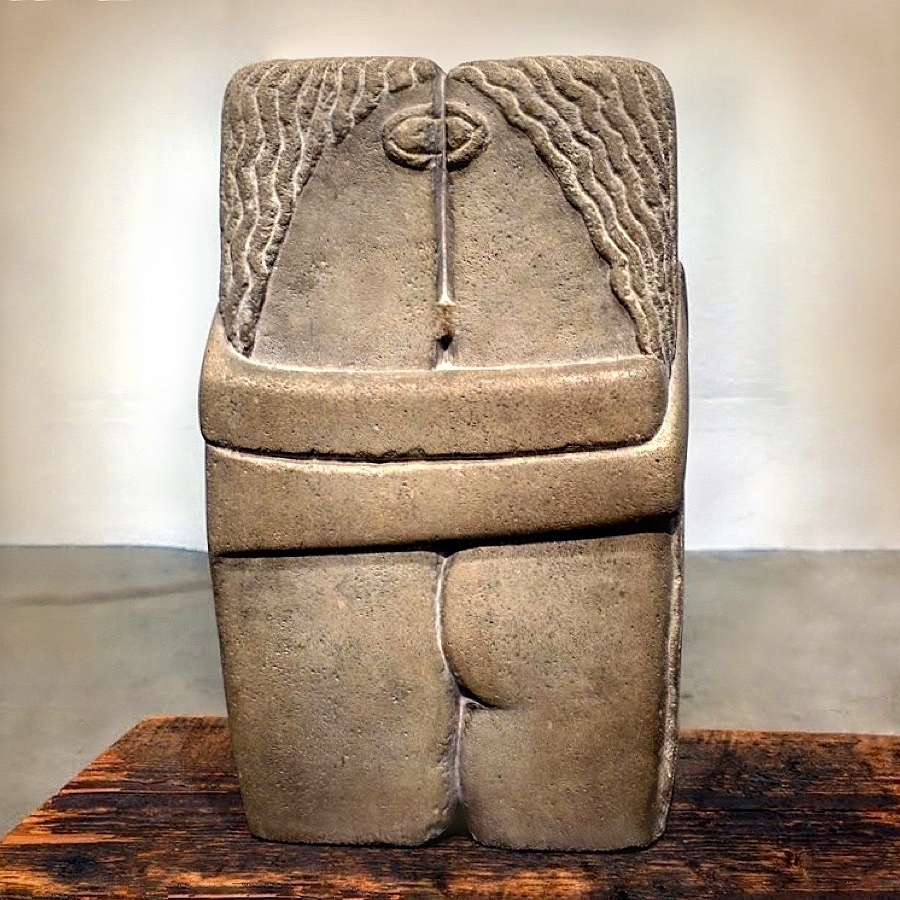 In the Old English Rune Poem, Ing is specifically masculine pronoun male. He’s a boy. But where Ing came from amongst the East Danes of what is now eastern Denmark and Southern Sweden, Ing appears to be a deity who was sometimes male, sometimes female, sometimes both at once. This is not uncommon, there are crowds of intersexed deities in world belief systems. I was going to list them. I don’t have enough space. But anywhere we look, there they are, including if we look toward Ing’s people. We have to look close, we have very little to go on.
In the Old English Rune Poem, Ing is specifically masculine pronoun male. He’s a boy. But where Ing came from amongst the East Danes of what is now eastern Denmark and Southern Sweden, Ing appears to be a deity who was sometimes male, sometimes female, sometimes both at once. This is not uncommon, there are crowds of intersexed deities in world belief systems. I was going to list them. I don’t have enough space. But anywhere we look, there they are, including if we look toward Ing’s people. We have to look close, we have very little to go on.
We also have to look at Ing’s people at the wrong times which is always tricky. Ing is called Ing in the Rune Poem, which was most likely written down in the 600’s but is probably several hundred years older than that. The runes themselves are certainly older. When Ing is called Ing in the … More
Translating Os
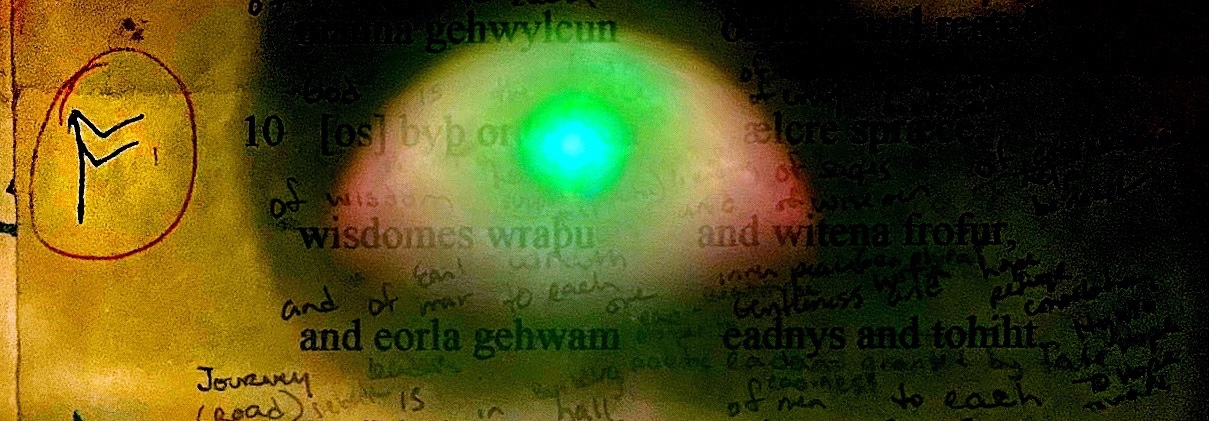 Os means God, non specified, though this stanza might be talking about a specific one. There are other specific gods in the Rune Poem. Tiw is here. So is Ing. We don’t know much about Ing. We don’t know much about any of the Gods the rune carvers were listening to. We do know the Nordic ones thanks largely to the thirteenth century Icelandic poet Snorri Sturluson, who compiled folk traditions into stories for a Norse king who liked his entertainment. Britain also being a North Sea culture, there was plenty of overlap. There’s not much written about the deities in Old English, though. Most everybody doing the writing was Christian, so. They had an agenda. These Christians preferred a reduction of the Gods down to a singularity, a point encompassing all other points, so the extra Gods they’d encounter tended to disappear.
Os means God, non specified, though this stanza might be talking about a specific one. There are other specific gods in the Rune Poem. Tiw is here. So is Ing. We don’t know much about Ing. We don’t know much about any of the Gods the rune carvers were listening to. We do know the Nordic ones thanks largely to the thirteenth century Icelandic poet Snorri Sturluson, who compiled folk traditions into stories for a Norse king who liked his entertainment. Britain also being a North Sea culture, there was plenty of overlap. There’s not much written about the deities in Old English, though. Most everybody doing the writing was Christian, so. They had an agenda. These Christians preferred a reduction of the Gods down to a singularity, a point encompassing all other points, so the extra Gods they’d encounter tended to disappear.
The word Os was disappearing too, by the … More
The Ogam Ash Tree
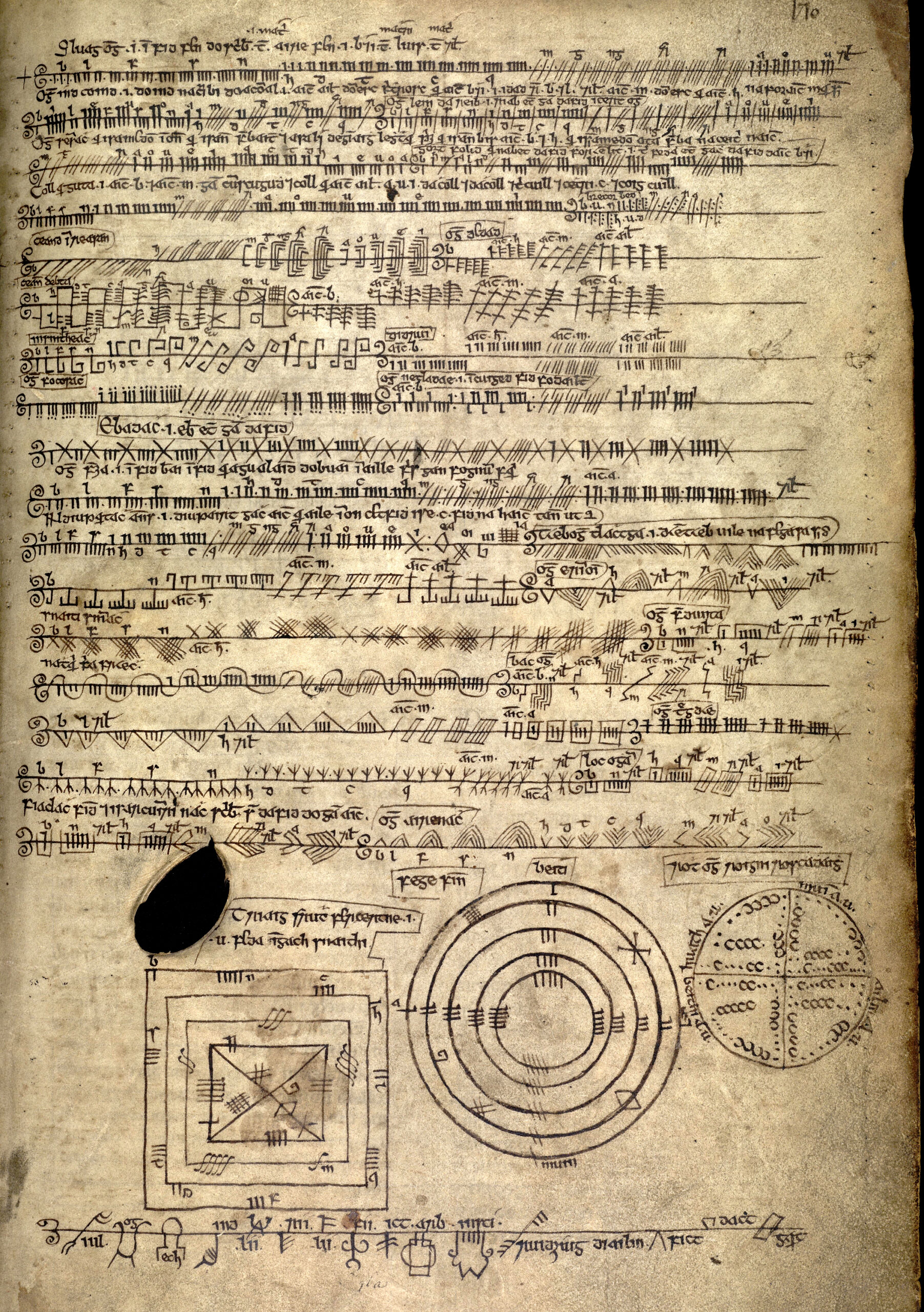 Ogam, spelled Ogham in modern Irish, is an Old Irish alphabet, it was possibly a cryptographic alphabet like the runic ones, and it may have had its own sign language and musical notation. The Ogam letters have names like the letters in the Rune Poem, and the letters have meanings we can glean from three collections of kennings, or Briatharogam (literally word-letters): words paired portmanteau style to make new meanings. It’s like a mini version of the Rune Poem’s riddles: two words give the clue instead of a whole stanza. These people understood how to work with brevity.
Ogam, spelled Ogham in modern Irish, is an Old Irish alphabet, it was possibly a cryptographic alphabet like the runic ones, and it may have had its own sign language and musical notation. The Ogam letters have names like the letters in the Rune Poem, and the letters have meanings we can glean from three collections of kennings, or Briatharogam (literally word-letters): words paired portmanteau style to make new meanings. It’s like a mini version of the Rune Poem’s riddles: two words give the clue instead of a whole stanza. These people understood how to work with brevity.
It is popular for people to think that all letters in the Ogam alphabet were always named after trees, and though there is a substantial grove of at least eight of them in the Ogam alphabet, there’s other stuff in there too. Take a look at the kennings for the letter R, ᚏ: tindem rucci… More


